The ultimate goal of every respectable prepper is to get off the grid completely and live a free, happy and fulfilling life, enjoying nature and the abundance offered by nature, without being dependent upon government agencies for survival.
There’s a tiny little problem with this utopia: energy. If you’re accustomed with 21’st century every-day conveniences, like reading this article from your computer over the internet, you already know what I’m talking about.
Until we discover a cheap and easy way of producing free and endless energy, we’ll never be free to do whatever we like with our lives.
Until that day comes (read nuclear fusion), let’s take a look at 7 ideas for building a power generator using readily available and relatively common materials that don’t require a master’s degree in engineering.
How does it sound? Let the games begin!
1. How to DIY a Power Generator Using Photovoltaic Panels
You probably already know about the Solyndra scandal and the epic fail of generating electricity in a big way using tons of solar panels and heavy subsidies from taxpayers money.
However, photovoltaic panels are actually an excellent alternative for producing small amounts of energy in a decentralized system (like your home or your place of business) as opposed to using them on a massive scale..
Yes, solar panels can work in small projects, on small setups, as an “extra” source of energy, etc.. First you must decide how much power you require and if your needs exceed 1kw/h, these are definitely not the option you’re looking for.
Solar power generation has its limitations and if you’re a power-hungry household you should look elsewhere. Obviously, for the project to succeed you must live in a “sunshine state” or area and also you should be able to afford buying the photovoltaic panels (B-grade types are cheaper and just as good), the batteries, the controllers, inverters and the rest of the gear.
A basic step by step process can be contemplated in the video below.
2. How to DIY a Portable Solar Generator
The previous idea was about DIYing a solar setup at home for reducing costs and as an alternative for depending on the power grid; it is a fixed solar generator basically. But with as little as $150 you can DIY a highly mobile, portable solar generator that comes in pretty handy when you’re out camping or in a SHTF scenario when the grid fails.
The best thing about this project is that it will cost you almost one third if you compare it with commercial versions (which cost ~$400 and don’t include photovoltaic panels!) and it works just as well. The parts required for the assembly are available online on amazon.com and you can build it according to your own needs and specs, i.e. as big and as heavy as you like it or need it.
We’ve included a video, above, showing what components are required and where to buy them and another one, below, about the end product. Have fun!
3. How to DIY a Power Generator from a Five Gallon Bucket
I think I already told you about the endlessly cool applications involving five gallon plastic buckets and I mentioned this idea about a power generator in a recent article.
However, you must remember that the plastic bucket serves just as the box, the recipient for the actual power generator. It’s just the shell, the casing, the chassis. You got the idea, right?
Basically, this five gallon plastic bucket power generator was invented and patented by a great guy named Sam Redfield and it’s relatively easy to build if you’re following the steps and materials.
This is an experimental power generator aimed for helping people living in third world countries in which energy is scarce. It requires a steady flow of water, i.e. 26 gallons per minute. It’s essentially a pico-hydro system (meaning tiny).
4. How to DIY a Power Generator from a Lawnmower
The idea behind using a lawnmower for generating power is pretty straight forward. It’s like a regular power generator; you know, the ones running on diesel or gasoline engines? Well, the concept is just the same, but instead of a regular power gen unit, you’ll be using your good old lawn mower as the hamster running on the wheels for generating power.
Of course, a lawnmower is way more powerful than a regular army of hamsters running on wheels; hence this power generator is capable of delivering a stunning 500 watt of power, enough to plug your AC unit or your kitchen appliances into it.
This is a relatively easy DIY project if you’re familiar with electrical components and engines. Also you can save lots of $ by cruising recycling centers and junkyards to pick up the required parts.
5. How to DIY a Power Generator from a Washing Machine
Basically, a “clone” of the lawn mower idea combined with the pico-hydro generator. You will find below a step by step tutorial depicting the process of recycling and converting an old smart drive washing machine into a power generator capable of delivering 780 watts, or even more; enough to live off-grid if shtf.
The concept is to use a flowing stream of water as the power source for the “turbine” and the internal components of the washing machine as hardware for the generator + a battery and an inverter. It’s an excellent project for generating free electricity from scrap, but you’ll need a bit of skill and hard work (with almost zero investments except elbow grease!).
This is by far my favorite DIY power generating project and the most efficient and reliable in terms of “best bang for the buck”.
6. How to DIY a Power Generator from a Bicycle
This is the real hamster running on wheels project, but this time you’re the hamster. The good news is that you’re not running on a wheel, but on a bike and you’re using your muscles for powering a 24 volt generator attached to your wheel.
As far as silly DIY projects run, this is by far the most fun and if you’re the “green” type (I hope you own a Prius too) you’ll enjoy pedaling for a noble purpose.
Below there’s a video with the tutorial but keep in mind that power generating using your muscles is not a “solution” for living off grid. I would regard it as an “exercise” for the real thing, like training for real combat with rubber knives and that sort of thing.
7. How to DIY a Power Generator from a Wind Turbine
The idea is nothing new; it was used (and still is in use) by “serious” companies all around the world for generating energy using wind power, but the end results are, at the very least debatable.
However, just like with solar panels, this is the kind of project that works well when implemented on a small scale for your home or place of business, as an “extra” or “cost cutting” method, or as an alternative to the power grid.
Here’s a video depicting the process of DIYing a small wind power generator for running a radio or charging your phone.
All that’s required is a propeller blade, PVC pipe, wire and a DC motor. This is a very basic project but even the large-scale ones are using the same principle. If you live in a windy area and you’re skilled and gung-ho when it comes to alternative energy, you can start small with this simple DIY power generator and end up who knows where?
If you have any suggestions or comments, feel free to share your thoughts in the comment section below.


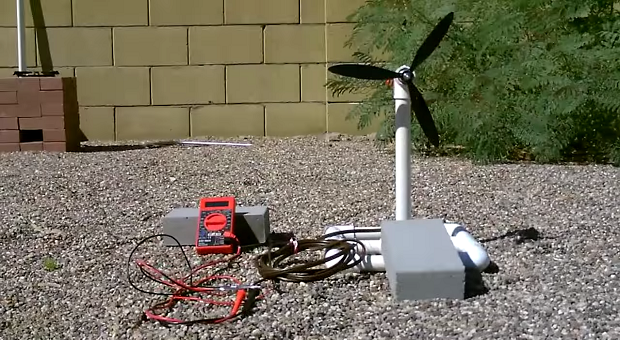


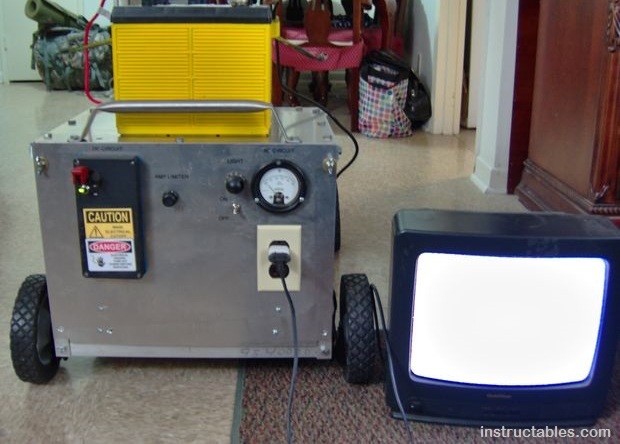

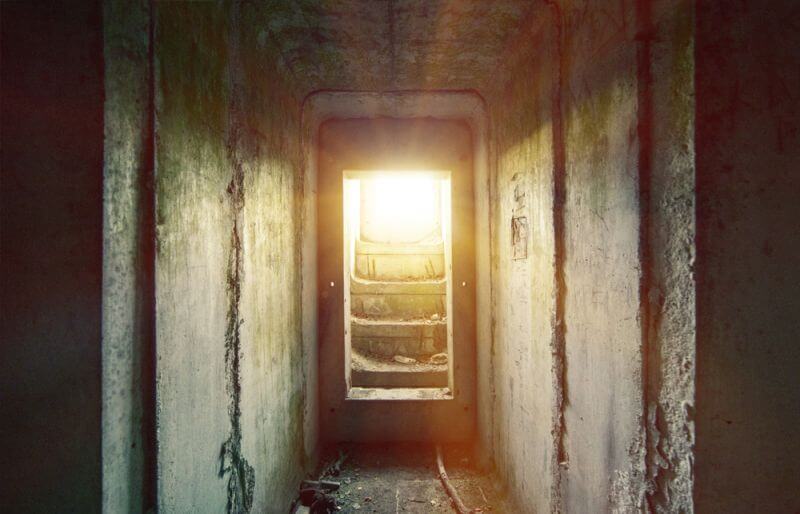
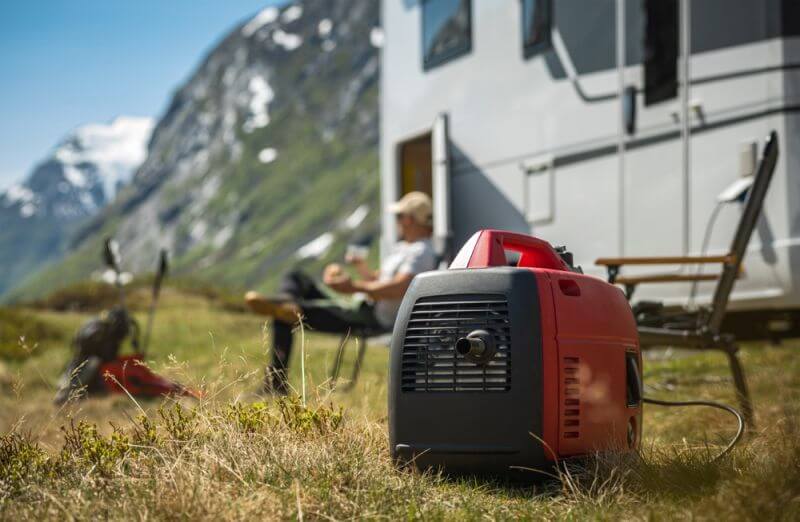
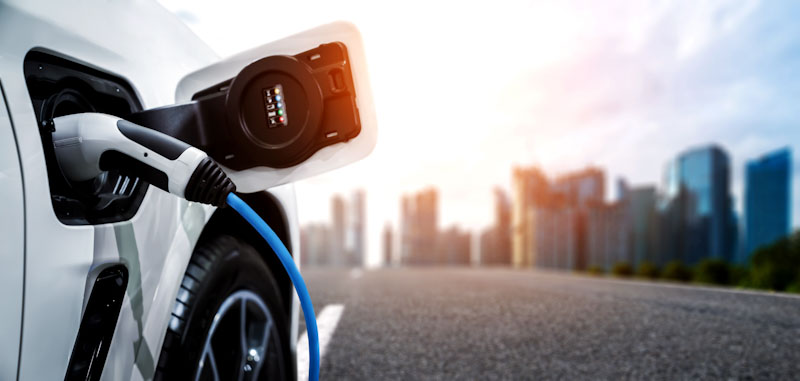


grintch | March 3, 2015
|
It would seem to me to be best to stick to a 12 volt system based on car batteries and alternators, as well as 12 volt DC to 120 AC inverters, also readily available.
What would be the optimum rpm to run a car alternator at from a bicycle?
The long “serpentine” belt used on most cars would probably fit on the bicycle wheel rim and mate with the alternator pulley. You would need to pick a comfortable pedaling speed that would still optimize the alternator speed. Possibly an intermediate idler shaft might be needed, using compatible automotive pulleys that mate with the serpentine belt grooves.
Nelson Raney | November 13, 2016
|
assuming 1500 rpm a 26″ rim in high gear with a belt right to an alternator has worked for me, still working on the wind to turn the pedals. Just get to speed and then charge the system. Need to try a 1 wire delco.
Robert Frisby | April 11, 2017
|
You would get better performance out of your bike generator if you used a low RPM PMA instead of a car alt. Car alt’s have to turn at high RPM’s to put anything out, like you said, about 1500 RPM’s. Your wind turbine would need to be huge and geared right to get enough power to turn that alt at 1500 RPM and handle the resistance as it is under load. Delco’s are not the best PMA’s try a hurricane PMA.
Jon from Milwaukee | August 5, 2017
|
i’m not familiar with the hurricane pma, but overall robert is correct. car alternators are designed to function at much higher rpms than a wind turbine or a human-powered device is capable of supplying. PMA (permanent magnet alternators) will supply useable levels of power at far lower rpms, and can be had either diy or manufactured. axial flux alternators can built without expensive tools and are well suited for used in wind tubines, pedal-powered devices and other low-rpm applications. I’ve even seen one hooked up to a steam engine.
Robert Frisby | April 11, 2017
|
It’s not a good idea to use car alts to charge batteries if you are running them with a bike or wind turbine. They need to turn at high RPM’s to put anything out and take a lot of leg work and they don’t work at all on a wind turbine. The best thing to use is low RPM PMA’s. You can but them or there are instructions online that tell you how to build them.
sciencetoolbar | August 23, 2017
|
I Have manage to create a small generator using a single neodymium sphere, coils and batteries
https://www.youtube.com/watch?v=Ud3fMcn7GAw
neodymium sphere : 26 mm (rotor)
2 coils 40 ohms each (stator)
Dc motor
all our test are on http://sciencetoolbar.com
oldshooter | March 3, 2015
|
I agree that you can save a good deal of trouble by staying with the 12 volt DC system. There is no need for an invertor if you use appliances generally available for RVs and sailboats, which are generally designed to run on DC current. Most of the home appliances you use can be found in forms that run on DC (refrigerators, TVs, blenders, coffee makers, sound systems, lights, etc. the list goes on and on). Unfortunately, so far, I have not seen a DC powered microwave, but you can always get a single item inverter/transformer for something like that, and with luck it will only be a matter of time til someone comes up with a DC version (possibly with a built-in invertor?). In any case, the live aboard sailboat crowd have been generating their own power from wind and solar, and using DC run appliances off their batteries, for many years now, and the serious RV crowd is often doing the same thing. Check them out!
Gary | March 3, 2015
|
Small current suppliers, like solar panels, are OK for either a short time or for small things like cell phones or rechargable batteries. (But if the SHTF, there won’t be cell service or TV’s). And the “pico-hydro” generator may be good for few larger appliances, or if you live on a river, but not for the modern household . What we need is something that is going to maintain a high current drain for a “reasonable” cost. $25,000+ for a home solar system is out of my budget range.
dale ruff | December 30, 2015
|
In 2013, it was reported that enough large scale solar facilities were being built to supply 3.6 million homes. Rooftop solar can power your house and your electric car for zero down and only 1/3 your old electric bills.
Molten salt large scale solar facilities can provide 18-24 hrs of solar energy, and the utility size plants have been operating over 20 years.
Solar is now at parity with dirty energy sources and soon will be cheaper.
You can get a rooftop solar for zero down and 1/3 the monthly payments as your old provider. You can buy a system, which will pay for itself in 5-7 years and give you 20 more years of clean,free energy.
Solyndra went bankrupt due to Chinese illegal dumping. The CEO of Chinas’s largest solar company (now bankrupt) admitted they were selling below production costs. The purpose of price war is to destroy the competition and Solyndra, with an innovative technology, got eliminated by a sudden drastic drop in prices. European and US companies that were damaged are suing, and several Chinese major companies went bankrupt as their price war bit back.
U.S. solar power grew by 6.2 gigawatts in 2014, a 30 percent increase over the previous year and representing nearly $18 billion in new investment, according to data released this morning by the Solar Energy Industries Association and GTM Research.
The new power systems, comprising tens of thousands of photovoltaic (PV) arrays for homes, schools, businesses and utilities, as well as a handful of large concentrated solar power facilities in places like the Mojave Desert, raised the United States’ profile as one of the world’s leading adopters of solar power, officials said.”
Chinese plans to destroy the US (and European) solar industries are aided and abetted by fossil fuel oligarchs in the US, like the Koch brothers, and by Republicans who are paid shills of Dirty Energy.
Don’t believe the lies: solar energy, distributed and large scale is growing, is cheaper in the West than dirty energy, and will help clean up our environment and protect human health from pollution. Anyone who claims it will not work is being paid to spread lies. Germany, a dark dungeon of a country, now supplies 30% of its energy with solar and wind and on certain ideal days, up to 80%. Solar energy is free, and that is why those who make billions selling polluting energy (shifting costs of harm done to the public) are seeking to block it. They want to block your access to solar energy, block the sun.
Fight back and save money by having a solar system installed for zero down.
dale ruff | December 30, 2015
|
When the SHTF, those with solar installations will be spared since they supply their own energy for their homes and their (electric) vehicles. You can get solar for zero down and cut your bill by 2/3. When those without have no electricity and no gasoline you will be watching your big screen tv and driving your car. In winter, you may have 1/3 less energy but in summer you will have a surplus. It’s a no brainer except for those who have been brainwashed by the cynical polluters in
Big Oil and Coal.
Jon from Milwaukee | August 5, 2017
|
And you say anyone who disagrees with you is the brainwashed one. . . wow. solar is nowhere near economic parity with what you call “dirty” energy except for all the lopsided government subsidies. also, solyndra had a business model that would not have worked even without the chinese solar companies. put down the kool-aide and try fact-checking your talking points.
Mahatma Muhjesbude | March 3, 2015
|
Decent Solar panels are now down to less than a buck a watt.
Depending upon how you configure and use your electrical appliances, you’d be surprised how much overall peak wattage you really need to be comfortable. It mostly has to do with managing and weeding out things you really don’t need electricity to operate.
In my permanent BOL i have a nice comfortable one bedroom ‘dwelling’ that only uses a max of less than 3000. watts and that’s including an electric refrigerator and all the major ‘conveniences’ except air conditioning because it is burmed on three sides and top and doesn’t need it even in 100 + degree temps. My battery bank can run it all for at least a week by itself before draining and i can charge it three different ways. But the 3000 watts of panels i have do the job so well by themselves on most sunny days that i’m thinking of getting another 1500 watts of panels and using these as back up electric heating even though i have wood and propane primary heaters, but the house is so energy efficient that i could heat the whole thing in zero weather with one little 1500 watt zone heater if i wanted all running just off the solar panels!
My total cost was only parts because i did all the labor and wiring but i think it was less than 4 grand for everything.
If any body is staring to get serious about off grid conversions get thee down to one of those ‘Energy Fairs’ they have every year in places throughout the country. Amazing the new things they have now. If you’re in the Midwest, there’s a real nice one in central Wisconsin this summer.
Darryl mason | March 9, 2015
|
CAN YOU TELL ME ABOUT YOUR SYSTEM AND WHERE YOU GOT THE COMPONENTS AND THE COST? [email protected]
Russ | March 9, 2015
|
Hi Darryl, I am leasing the solar panel system through “Solar City”. They installed all of the parts on our roof and handle all the permits and inspections. I signed a 20 year contract with them and get charged by the kilowatt hours used. The rate is less than the power company but can be adjusted annually. This is the only way I could afford solar energy so it seemed best for me even though I have to remain on the grid. Let me know if you can’t find Solar City on-line.
griffinaero | March 10, 2015
|
My system was installed by Pure Energy Solar (pureenergysolar.net) in 2009.
It is a 4725KW PV system consistg of 27 Sharp 175 watt solar modues and 1 SMA Sunny Boy 5000 watt inverter. The system cost $25,000 and installation was $7,500, done in just a few days. It has worked flawlessly, needing only cleaning occasionally, a few times a year. The $32,500 was cut to $14,881 by federal and state rebates.
I figure it saves me around $85 a month but probably more, when my all-electric
house bill is over $50 I give it a look. (I do like it warm inside…like 80 degrees).
Synched to the grid, when it is down the system is down; all that energy is stopped at the connection. I plan to remedy this by interposing a cutout switch to direct the energy to a battery bank.
I would do the solar system myself, but it must be certified in order to use with the grid and the rebate program offered incentive I couldn’t resist. This way I don’t have the expense and trouble of batteries, and hopefully battery technology will provide better options when I can do the changes.
Russ | March 4, 2015
|
I recently had a leased solar panel system installed. It took more than 6 months but there was no cost to me. There are 2 inverters and the company that owns the panels replaces any damages to or caused by the system. If the roofing needs to be replaced it costs around $500 to remove the panels and $500 to replace the panels. They can be moved to a new home or the new owner can pick up the 20 year contract. Unused energy is sent into the grid to be used during the dark hours and if I use more than I produce I pay for that amount from the grid. I pay a rate that is less than the kilo-watt rate from the grid for the amount I use plus I pay for grid attachment. If I produce more energy through the solar panels then the grid gives me a refund annually. This is brand new to me so it will take a year or so to see if everything is true.
Pingback:DIY Power Generator: 7 Good Ideas | TheSurvivalPlaceBlog | March 5, 2015
|
griffinaero | March 6, 2015
|
Very many of us have engine-powered generators that will serve most of our needs an when the power grid fais can fire the sucker up and have our fridge and well pump working for our needs just fine.
The big problem is: he darn thing will put out SO DAMN MUCH NOISE THAT every desperate individual within MILES is going to know just where the goodies are!!!!!
I contacted the manufacturer of my generator and they couldn’t care less about quieting the unit I have. This is a niche that an enterprising person would have to make a lot of money. If cars can be quieted so well with exhaust silencers equipped with pulse- deadening tuned systems why can’t smaller engines do so?
I don’t have the time nor the expertise to address the problem but would pay for a solution
andy | March 7, 2015
|
Perhaps the necessity of mufflers isnt the major concern to manufacturers. Look at the size of the mufflers on cars and the ones on small engines. Theres just no room on lawn mowers for mufflers that size but if your engine is stationary a larger muffler is usable so try attaching one of those and see if that works for your problem.
Scott Todd | March 7, 2015
|
I know that older B&S engines can be retrofitted with larger mufflers. Haven’t done it myself, but have a 3.5KVA unit that could benefit from it as well which is how I found out. The only catch is it can’t be too close to the gas tank.
Great Grey | March 30, 2015
|
I did the same thing with my tiller with a Kolar engine made it so much nicer to use. and even lawn mowers can have better mufflers put on them. The factory mufflers only have to quite the sound level to point x at the user position which has nothing to do with making it nice to be around. It is just to keep you from going deaf too fast.
Great Grey | March 30, 2015
|
Also, a better muffler lets you hear noises that let you identify problems and get them fixed while small.
Scott Todd | March 7, 2015
|
I think I’m screwed- I’ve got a heat pump and unless I get a fairly large system there’s no way to power it. The chimney is long gone too.
griffinaero | March 7, 2015
|
A small outbuilding with ductwork to the house can house a woodburning stove and the heat can be blown into the house with simple fans.
griffinaero | March 7, 2015
|
I plan to experiment on running the exhaust into a shallow trough of water, not so deep as to create much back pressure. That, and a sound deadened open top enclosure to contain whatever noise might be helpful. I just haven’t the time right now to experiment and the need isn’t too urgent to move the project up the list here in the country. If I were in a tighter spot I’d experiment with tuning the pulses with siding tubing to smooth out the noise; also a closed “appendix” attached to the exhaust outlet near the engine to absorb the compression and release it with each pulse might do great things, once again the volume can be adjusted with sliding tubing. A look at the exhaust systems on the present day cars would be good for this. To save trouble just buy a totalled late-model car and use the quieted engine system to power a generator.
griffinaero | March 7, 2015
|
This is a niche hat needs filling and some gearhead who needs to make a lot of money can really clean up!
Quiet the generators so many people have.
Think about this:
When the power quits it will get VERY QUIET.
An engine will be heard for MILES.
An engine means power and food and water
You will attract desperate people from everywhere
You cannot supply everyone and might end up dead, along with your loved ones.
If you are lucky you’ll escape with nothing but your skin.
techtrade8 | March 11, 2015
|
7 years ago I put together an off grid solar electric system, 6 panels, charge controllers, 6volt batteries hooked up in series and parallel. It powers lights, tv,sat box, computer, phone chargers. I have 3 inverters,, ranging from 400w to 3000w. I select which one to use based on need. During hurricane Sandy, our town was out of power for 6 days. We ran most of the house on my small system. 2 years ago, I added 2 wind turbines. The wind and solar co-host beautifully. I am now looking into a small steam engine,boiler with generator to be able to add a small amount of charging to battery bank during those times we don’t have sun or wind. Did I mention that I cut my power bill almost in half?? Great system..medium sized….1.4kw.. everything was bought on ebay or hardware store. Not difficult to accomplish…
griffinaero | March 31, 2015
|
It would sure help, when y’all talk about a good system, to be specific where your sources are.
Pingback:Why Should You Build Your Own Power Generator? | The Prepper Dome | May 1, 2015
|
Pingback:DIY Project: Off Grid Air Conditioner And Dehumidifier | Survival skills, survival guns, survival guide | June 19, 2015
|
Aaron Kriegerson | November 3, 2015
|
Thanks for the tips on how to build or select a proper generator. My parents had a generator for their old home. They were out in the sticks and sometimes the power would go out during the winter. Their generator helped to keep their home warm and their fridge running. I’ll keep your suggestions in mind.
Maryanne Bellwether | January 2, 2016
|
This video really only shows how to make a short stand from pvc pipe. There is no description or explanation for the motor used or the propeller- – no information about voltage or current, or about using it — so, nothing about wind conditions or height of the mast. Most frustrating is his casual warning that the setup won’t work without a charge controller, which he doesn’t show or even describe. So, this video is of almost no value unless you’ve always wondered how to built a one or two foot stand from PVC pipe.
Maryanne Bellwether | January 2, 2016
|
My comment was intended for the video about building a small wind turbine — NOT the 7 ideas article, which I liked and found very useful!
Pingback:Off-Grid Winter: How To Generate Power On Ice | Survivopedia | February 2, 2016
|
Pingback:Off-Grid Winter: How To Generate Power On Ice | Prepper's Survival Homestead | February 2, 2016
|
Pingback:Off-Grid Winter: How To Generate Power On Ice | NewZSentinel | February 2, 2016
|
Pingback:Off-Grid Winter: How To Generate Power On Ice | | disasterdefense.us | February 3, 2016
|
Pingback:15 Ways A Prepper Can Use Magnets - Backdoor Prepper | May 26, 2016
|
Peter | June 4, 2016
|
If you are able to make low cost high ah carbon, graphite or magnesium anodes yourself are wet cell batteries (with saltwater ) very effective for low voltage off grid living.
Pingback:15 Ways A Prepper Can Use Magnets | Survivopedia | June 21, 2016
|
Pingback:Why Should You Build Your Own Power Generator? | Survivopedia | June 22, 2016
|
Pingback:DIY Back Up Generators and Generac Generators | July 7, 2016
|
Oukyumi | October 10, 2016
|
How to Make an Electric Hot Wire Lighter :
https://goo.gl/5qLUwJ
Pingback:10 Ways To Harness Wind Power | Survivopedia | October 12, 2016
|
Phil | November 18, 2016
|
Found that the cost of battery banks to store the solar powered energy is very expensive. The system I am looking at is trying to facilitate a 40KW Monthly usage. After doing the numbers found need about 24 6 volt batteries with two 6 volts tied in series to bring up to 12 V system. Best cost for this 24 battery bank is 4K, and the life of the batteries is 4.11 years with not draining the batteries more than 25% (Leaving 75% charge). Life of batteries are specs by amount of drain versus number of cycle times before batteries need to be replaced. So doing the math I find that Just the battery cost alone would cost me $973.23 per year, not to mention the other costs like solar panels, Regulators, Inverters, Etc… Have not figured the whole cost to generate my own power with the rest of the cost thrown in (Approx additional 12K), but already come to the fact that I would not be doing this to save money on my electric bill. Would have to take the approach that if survival during grid down may justify this but then would go for smaller system approach geared for that approach. Also throw in the fact that solar panels loose efficiency over time (ie 85% after 8 years) and then have to look at replacement after a few years to keep the system running at top performance. I think a Generator is a better investment if I can store enough gas to keep it running. Ozone wise I think there are lower hanging fruit than the amount of electric I am using, like cleaning up coal burning and using NG to generate power but that must be pushed at a utility company level. I guess the advantage of global warming is less energy use on heating homes and more days of good solar energy generation… 🙂 Anyway my point is that the numbers don’t work to try and generate cheaper power and try to compete with our hydro generated power costs we are paying for her in Idaho. What if the world was full of good information/data and not so much impulse and incorrect/fad data ?
Phil | November 18, 2016
|
Correction: Said “40Kw Monthly” meant 1040Kw Monthly.
Phil | November 18, 2016
|
BTW, Using lithium battery with same capacity (Less batteries due to drain ablility much better) cost is $2,043.80 per year.
Robert Frisby | August 23, 2017
|
I have posted on here before about the use of car alt’s for generating power on bikes or wind turbines but now I would like to talk about something else that I don’t think most people realize and that is this thing of building different types power generating devices to get off the grid, save money, stick it to the power companies or just free energy. First off there is no such thing as free energy! Any device that you build or by for power generation will cost money to build, buy and maintain. You cannot get something for nothing. It cost money to build or buy the solar panels, then there is the inverter and if you want power at night without being tied to the grid, batteries which are not cheap and will only last a few years. Also solar only works at full power in full sun and nothing at night. Wind is the same if not worse, Wind does not blow constant and mostly only during the day and some days not even enough to turn your wind turbine. Gas generators cost to much to run, steam engine needs fuel and maintenance., a bike needs very in shape people, not just one person but many to run that bike long enough to completely charge those batteries. A weight driven generator is about the only one that will run all the time but you still have to pull the weights back to the top several times all day and night. Anyway you look at it, your putting time money and energy into what ever system you build, big or small. No such thing as free energy.
Monte Bores | August 13, 2019
|
What about the Tesla coil? Seems like that has potential. Is anyone well-versed on the topic?
griffinaero | August 14, 2019
|
For temporary power you can use your car engine and a 2000W pure sine wave inverter. Just connect the inverter and plug in a heavy extension cord to run your fridge and a few lights, LED TV, computer… When in use you must run the engine a bit above idle to get the power you need without running your battery down. To do this get a stick to press the accelerator down; you can adjust the seat to get it just right.
This will be quiet and economical, and stocking up on gasoline is a good idea anyway, just add preservative.